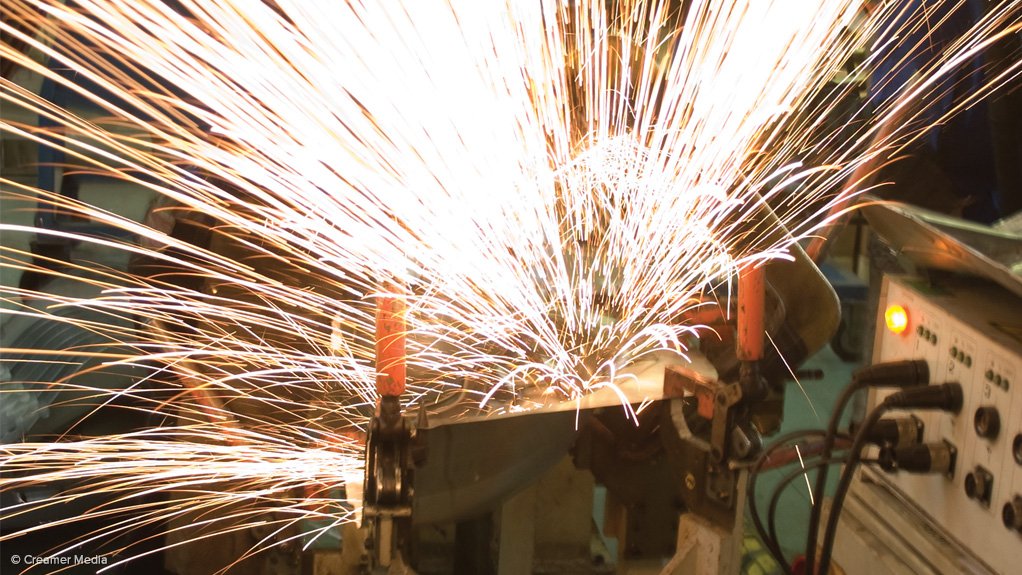Foreign direct investment in South Africa this year is likely to scale down as a result of dampened investment appetite, exacerbated by a lack of policy certainty, South African-Germany Chamber of Commerce (SAGCC) CE Matthias Boddenberg told Engineering News Online.
“I would like to say politely that the investment appetite is limited,” Boddenberg said on the sidelines of a SAGCC business lunch.
He noted that the stalling of the promulgation of the Promotion and Protection of Investment Bill, which was drafted in 2013, was one of the biggest factors in deterring investment. “[When] this Bill was presented, we were also invited to give our input.
“Some changes [were] made after the National Economic Development and Labour Council process, but we are now eagerly waiting for the new draft Bill, before it comes [before] Parliament.”
The draft Bill was set up shortly after South Africa decided to unilaterally terminate its bilateral investment treaties with certain European countries and specifically Belgium, the Netherlands, Luxembourg, Germany, Spain and Switzerland.
The Bill was intended to promote investment by modernising the current investment regime and getting investors, whether foreign or local, to achieve a balance of rights and obligations that apply to all investors when investing in South Africa.
Further, Boddenberg pointed out that discussions about land expropriation, were leading to a lot of insecurity, as government was proposing that foreigners would not be allowed to own any property in South Africa. This was not conducive to investment, he said.
“If I [establish] a production plant [in this country], I want to have a guarantee that the investment that I put here is secure and that nobody will force me to sell my production plant in the foreseeable future.
“We [also] need more certainty about policies in the country. . . in terms of how the investment framework [will] look like in five or ten years. We need a line that we can plan along to,” he noted.
Boddenberg averred that South African production also needed to become more competitive. “In terms of export competitiveness, one must see that the country is in competition with other countries and other regions, where production might be more efficient, as they have reliable power, they have labour policies that are very consistent, trade unions that are reliable and legislatures that consult with them before draft Bills are issued,” he added.
“This is basically the single most important handicap – I wouldn't say hindrance – but handicap for investment in South Africa,” he noted.
Further, Boddenberg said that the country’s inflexible labour laws, although good, needed revision. “[In terms of trade unions] we must be able to rely on contracts to be kept to, we must have security in our planning process, [as] we don't only plan for tomorrow, we plan years in advance.”
FOCUS AREAS
Meanwhile, Boddenberg noted that the chamber would focus on four main areas in the year ahead.
“The first focus area is renewable energy and the partnership of German and South African companies [in this respect], particularly wind and solar,” he said.
In light of the ongoing electricity problems experienced in the country, the chamber has invested in a solar photovoltaic (PV) system for its offices in Forest Town, Johannesburg. The PV system would produce around 25% of the chamber’s electricity requirements.
The second focus would be on mineral resources and beneficiation. “We have a competence center [for] mineral resources, where we focus on cooperation between German and South African companies in the modernisation of the mining industry and beneficiation of minerals.
“We are looking at the higher-value sectors, [such as] platinum, aluminium and bauxite,” he added.
The chamber would also intensify its training and education initiatives this year, through its Southern African German Training Services subsidiary.
The organization, which trains South Africans according to the German dual-vocational training system, traditionally carried out training in Gauteng, but the chamber was looking to expand this to other provinces, such as the Free State.
The chamber would have an intake of 150 applicants this year.
The fourth focus area would bring German companies into the South African market and bring South African companies to the German market. “At the moment, we have, for example, a big interest in German sweet manufacturers. These companies have a massive interest to come here and there is a massive interest in South Africa for their products.
“Two years ago, we did a similar initiative for bread and dough products and, today, you will find these products in your supermarkets,” he said.
EMAIL THIS ARTICLE SAVE THIS ARTICLE
To subscribe email subscriptions@creamermedia.co.za or click here
To advertise email advertising@creamermedia.co.za or click here











